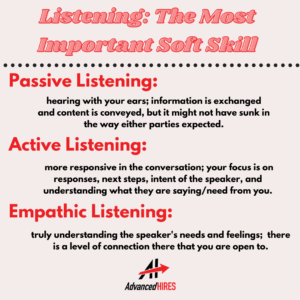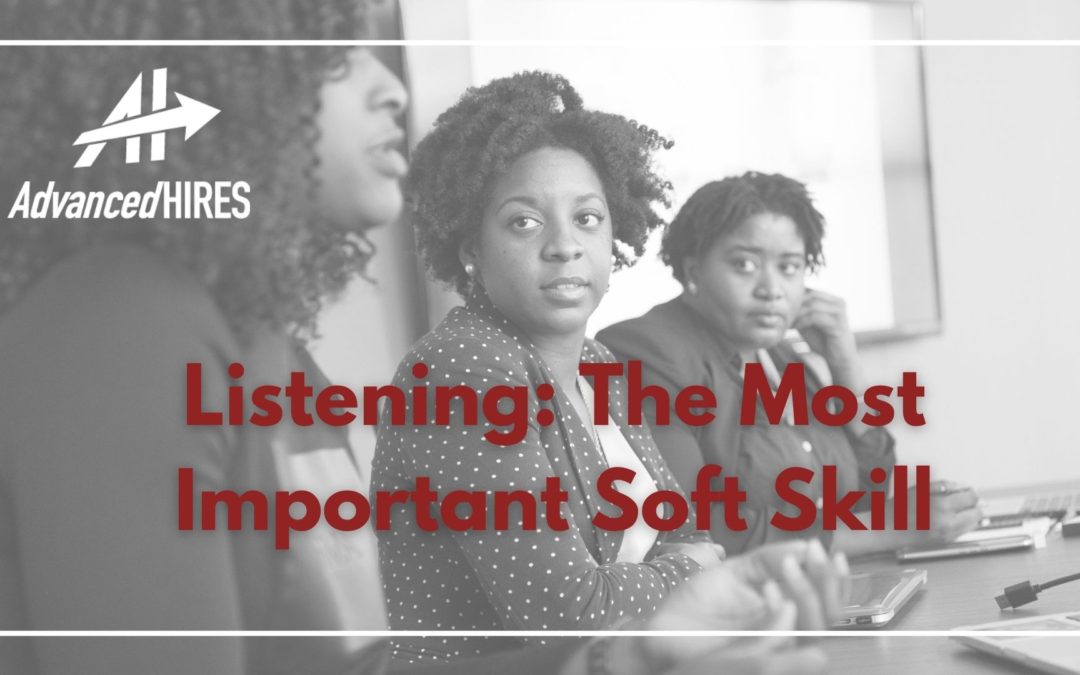Whether you are a employee or a supervisor, a hiring manager, or a job candidate, one of the most important soft skills you can ever learn is listening. Listening to colleagues, direct reports, and bosses is an important and simple way to elevate your working experience. It can even help cultivate your career.
There’s a difference between passive, active, and empathic listening in the workplace. Passive listening, at the most base level, is simply audibly hearing that the other person is saying. However, your focus is likely on other things, and while the information is exchanged and content is conveyed, it might not have sunk in the way either parties expected. Active listening, on the other hand, means you are more responsive in the conversation; your focus is on your responses, next steps, intent of the speaker, and understanding what they are saying/need from you. Finally, we have empathic listening, which goes deeper than both passive and active because it’s about truly understanding the speaker’s needs and feelings. There is a level of connection there that you are open to.
Being an empathic listener is important because communication gaps in the workplace can cause issues and stress such as:
- decline in productivity
- less initiative
- finger-pointing instead of taking responsibility
- lower customer satisfaction rates
- people avoiding challenges
- limited interactions among staff and employers
- complaints, conflict, and unrest
By improving listening as a soft skill, you can set up yourself AND your company for future success. Being able to communicate and listen to someone in a way that goes beyond passively absorbing the information is undeniably beneficial. It can improve your emotional intelligence, allow you to pick up on context clues, and create ways for you to understand not only content, but emotional sub-text too.






